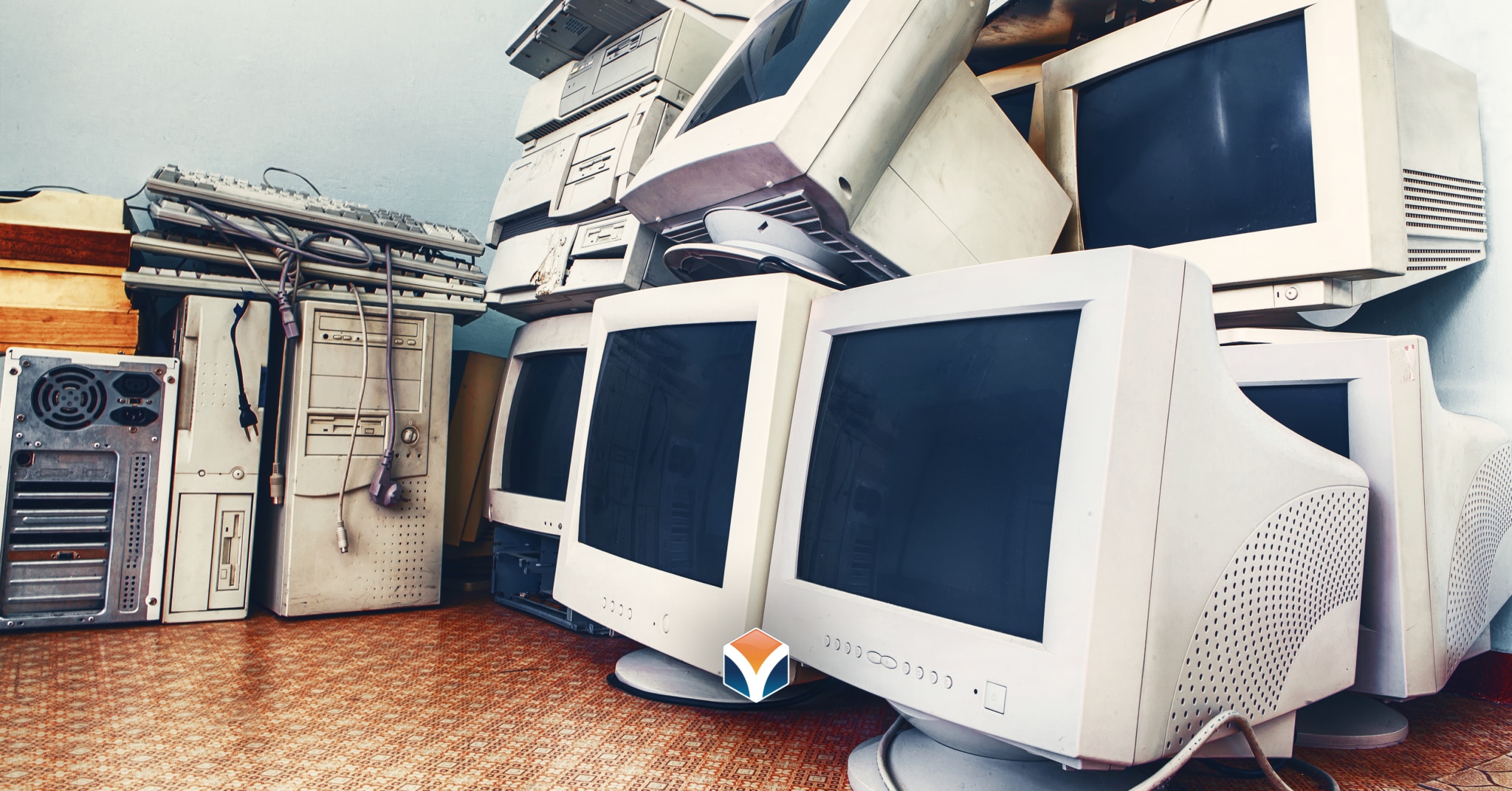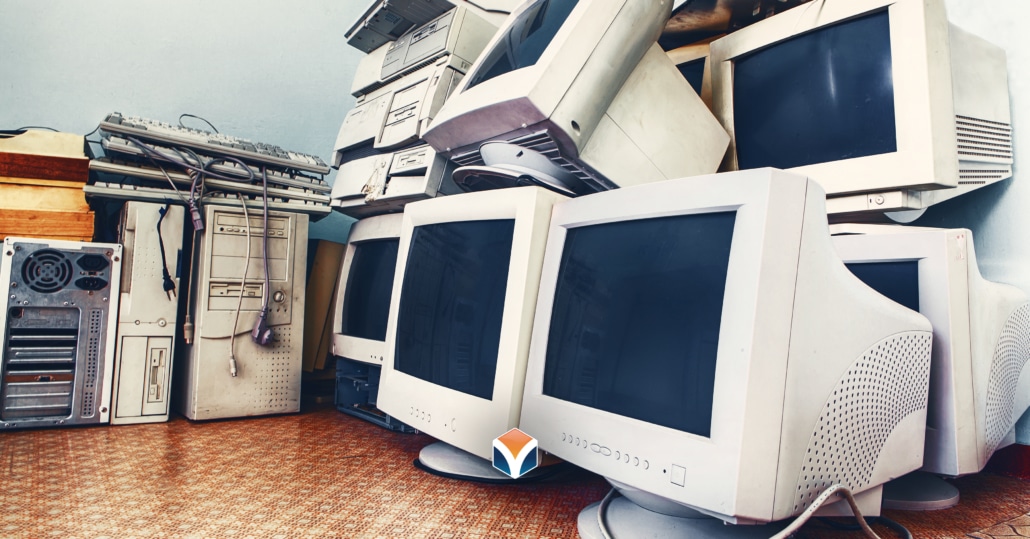Most of us are dependent on technology, and we have a gadget for every part of our day. These devices are replaced with newer, shinier versions each year, and we ditch the old for the new.
Over time, however, that outdated tech manages to pile up, and people are forced to take a box of old gadgets to the dumpster out back.
Unfortunately, it’s not ideal to immediately toss that old computer or TV in the trash. This can lead to security vulnerabilities and even negatively impact the environment. Instead, here are a few best practices on how to properly dispose of old electronics.
[av_two_third first av_uid=’av-kcje8l’]
What do I do with my old laptop or computer?
Whether you decide to trade, sell, or dispose of that old laptop or PC, there are several steps you need to take to protect your information.
- Save important files – Use an external hard drive or large-capacity flash drive to save any relevant documents and files before deletion.
- Delete files on drive – Manually remove all sensitive documentation with secure deletion software.
- Turn on drive encryption – If you’re disposing of a laptop or hard drive, turn on drive encryption under the security and privacy settings of your computer. This will prevent unauthorized access.
- Deauthorize your computer – Some applications give the mac address in your computer access to its services. Before getting rid of your computer, deauthorize any third-party access.
- Wipe hard drive completely – While completing a factory reset may remove all personal files and software programs, it doesn’t always remove every trace of the data stored on it. To do this, you should invest in specialized software that is designed to verify all traces of sensitive information are removed.
Related Content: 5 ways to repurpose that old tablet
What do I do with my old cell phone?
New smartphones typically maintain a high resale value, so selling or trading in your old device is a great way to make room for the latest upgrade. However, smartphones should be treated the same way as computers. After all, our phones can give a hacker a play-by-play of our entire life.
- Clean it
- Manually deleting your old messages, photos, and contacts can work to a certain degree, but this isn’t necessarily an efficient means of clearing your phone.
- Both Android and iOS devices have several factory reset settings that make this process easy. However, you should make sure your data is encrypted before performing the reset.
- Most devices will allow you to enable this setting in the security and privacy settings of your phone. While this process will take longer, it will make any data traces inaccessible to other parties.
Remove SIM cards and storage
All smartphones require the use of SIM cards to activate service. These cards should be removed (or completely wiped) before you toss the device.
What do I do with my old camera?
Unfortunately, most cameras and video recorders don’t maintain the same resale value as computers and smartphones. However, since they can contain personal photos and private information, it’s important to properly prepare these devices for disposal or resale.
- Remove all external storage media
- Most new cameras have replaced the need for film with large amounts of digital storage space. In most cases, this storage is restricted to removable memory banks which should be taken out of the camera before resell or disposal.
- In the event that the storage needs to be included in the resale, wipe the storage using the camera’s storage formatting tools.
- Purge the camera’s internal storage
- Some video recorders and cameras have an internal storage capacity that cannot be removed before disposal. If this is the case, you should be able to connect the device to a computer. From here, you can access the files and format the storage space.
Related Content: Adopting new tech? Keep these 6 tips in mind.
What do I do with my old TV?
While most TV’s and computer monitors cannot store valuable information, there are considerations to take on how you should safely dispose of these items.
TV’s and monitors can contain harmful substances such as lead and mercury. Because of this, they need to be taken to specific waste facilities that can handle the breakdown and disposal.
Local waste management facilities and recycling centers can direct you on how to best dispose of these older electronics.
Green initiatives and ethical disposal methods
As we continue to upgrade our electronic devices over time, we always need to consider best practices and ethics.
There are several safe and effective ways to dispose of old, unwanted devices without taking a trip to the local dump. Several major cities and towns even sponsor special events that are intended to collect and repurpose old electronics (rather than sending them in for dismantling and destruction).
There are also charities and nonprofit organizations that can repurpose unused electronics. In particular, this is a great way for your business to give back to the community and dispose of electronics properly.
Final thoughts
Proper disposal of electronics is critical for data privacy and environmental health. By following this guide, you’ll be able to safely replace, sell, and dispose of your old electronics and help build a sustainable future for the next generation.



